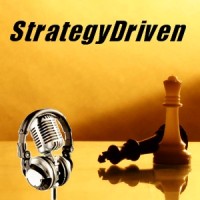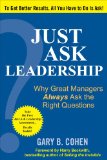In business we all have a secret weapon. Strategy is quite possibly the strongest resource in your business arsenal. Regardless of which area strategy refers to – whether it be “communication”, “brand planning” or “sales” – without a clear-cut strategy, you will more than likely not succeed to the level that you expect.
Yes, strategy requires many hours of well-spent time researching the landscape in which you may find yourself. This implies understanding your product or service inside and out; your competitors – a SWOT analysis at this point is masterfully useful – and also defining a clear path to that which you hope to achieve.
It has been proven that those who have a clear vision for their goals achieve them nine times out of ten, whereas those without a vision only hit the mark half the time.
Defining the Vision
The “vision” quite simply put, is that which initially drove and inspired you to take the plunge and launch your idea.
There is no need to put the vision together in detail at this initial stage; bulleted lists will more than suffice. Fill out the details once you are comfortable with the general overview of your vision. This will assist you as well as any other potential investors or partners to understand your own goals coherently. It will also allow for you to plan carefully around the existing landscape.
It is important to stay focussed on your idea and vision throughout the initial life cycle no matter how difficult this may be. New ideas will arise as you put thought into practice. Some of these ideas may be feasible, but others might lead you astray. It is important that when such distractions come into play you are ready for them. Understand them for what they are and know how to deal with them. Some find it helpful to employ the services of specialist consultants to steer them through the clutter of these initial steps.
In Japanese philosophy there is a word that captures this phase of constant vigilance, “Zanchin”.
Awareness, determination and perseverance lead to success.
The Art of War
In a competitive landscape with few refreshing new ideas many businesses find themselves at war with one another. That is the true definition of the word “strategy” after all – “the art of war”.
A well known writer by the name of Sun Tzu wrote a book on this principle which is easily adaptable to any situation in which you might find yourself. We are all warriors in the greater scheme of life, fighting to keep our entities afloat and successful.
“People should not be unfamiliar with strategy, those who understand it will survive, Those who do not understand it will perish.” From Sun Tzu’s The Art of War.
Five Elements of Strategic Planning
In his book, Sun Tzu outlines the five elements of strategic planning as he sees them. These elements are;
- The Mission – Your vision: the business, the people, the clients and your role.
- The Climate – Creating the opportunity. The timing and trends that provide you with opportunity.
- The Ground – The area of your business where you choose to compete.
- The Leadership – Great leaders inspire followers. Ensure that your leadership style buys into your vision.
- The Methods – The way in which you choose to run your business, a mastery of certain skills and processes.
“Until we equal or exceed our opponent’s score in these five elements, we do not challenge or begin our venture or even respond to our opponent.” From Sun Tzu’s The Art of War.
Sun Tzu further explains that it is from here that we advance our position by understanding the five elements of strategic planning. It is the foundation from which we know our strengths and set our goals and vision to overcome our opponent. This is a way to secure success in the challenge before it has commenced.
Leverage Thought Leaders
We are very fortunate that the Internet has made it possible to find and follow the strategies and philosophies of many great thought leaders from around the world.
Although we are not able to speak to Sun Tzu directly, there are many great leaders that have adopted his principles and have built successful empires in the modern world. Google and Nokia are amongst these.
There are many websites that specialise in putting you in touch with the right people in this modern age. Some are so well connected that they are able to bring you a handful of those people and get you guaranteed one-to-one sessions with such gurus of industry.
When it comes to strategy in a competitive landscape, two heads are better than one. Ensure that you follow the basic principles to set the foundation and where possible leverage from the experience of those that have gone before you to build successful business strategies.
Article Source
http://www.bestmanagementarticles.com
http://strategic-management.bestmanagementarticles.com
About the Author
Shoulders of Giants is an online business resource, showcasing the top business thinkers in various business related topics, such as strategy. These topics are discussed by renowned thought leaders and business gurus such as Mark Earls.



 Management observations profoundly influence the behaviors of those observed. Done well, this tool positively reinforces desired behaviors. Performed poorly, this tool will undermine the management team’s credibility and fosters cynicism towards managers and their performance standards requirements. Therefore, it is critical that those performing these observations do so in a consistent, high quality manner.
Management observations profoundly influence the behaviors of those observed. Done well, this tool positively reinforces desired behaviors. Performed poorly, this tool will undermine the management team’s credibility and fosters cynicism towards managers and their performance standards requirements. Therefore, it is critical that those performing these observations do so in a consistent, high quality manner. “Might does not make right! Right makes right!”
“Might does not make right! Right makes right!” StrategyDriven Podcasts focus on the tools and techniques executives and managers can use to improve their organization’s alignment and accountability to ultimately achieve superior results. These podcasts elaborate on the best practice and warning flag articles on the StrategyDriven website.
StrategyDriven Podcasts focus on the tools and techniques executives and managers can use to improve their organization’s alignment and accountability to ultimately achieve superior results. These podcasts elaborate on the best practice and warning flag articles on the StrategyDriven website.
 Gary Cohen, author of
Gary Cohen, author of